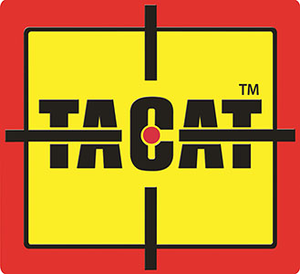ATF chief operating officer calls for loosening of gun regulations
The second-highest ranking official at the Bureau of Alcohol, Tobacco, Firearms and Explosives recently authored a proposal to modify and reduce gun regulations in the United States.
The 11-page “white paper,” obtained by the Washington Post and drafted by the ATF’s associate deputy director and chief operating officer Ronald B. Turk, includes but is not limited to the following proposals: removing restrictions on the sale of suppressors; conducting a study concerned with lifting the ban on imported assault weapons; and requiring a higher amount of crime guns to be traced back to specific dealers before the federal government asks for additional information from those dealers.
Turk writes in the introduction to the paper, entitled “Options to Reduce or Modify Firearms Regulations,” that “these general thoughts provide potential ways to reduce or modify regulations, or suggest changes that promote commerce and defend the Second Amendment without significant negative impact on ATF’s mission to fight violent firearms crime and regulate the firearms industry.”
“This white paper is intended to provide ideas and provoke conversation,” Turk continues, “it is not guidance or policy of any kind.”
Turk also reminds that while his paper does not focus on enforcement or regulation, those are still “extremely important” parts of the ATF’s mission.
The Washington Post reports that ATF spokeswoman Jan Kemp said Turk’s proposals do not represent the views of the agency.
“It’s simply his opinion,” said Kemp, “and it’s to generate dialogue.”
Perhaps Turk’s most timely proposal has to do to with removing restrictions on suppressors, also known as “silencers.” The Hearing Protection Act, a current bill making waves in the U.S. Congress, would make it much easier to purchase silencers, eliminating the tax and long waiting period.
“Silencers are very rarely used in criminal shootings,” Turk writes. “Given the lack of criminality associated with silencers, it is reasonable to conclude that they should not be viewed as a threat to public safety.”
In addition to deregulating silencers, Turk suggests removing restrictions on imported assault weapons, pointing out that many semiautomatic assault rifles are now used in sport shooting.
“Those firearm types are now standard for hunting activities,” Turk argues in the white paper. “These restrictions have placed many limitations on importers, while at the same time imposing a heavy workload” on the ATF.
Another of Turks proposals relates to a federal regulation that requires the ATF to send a “demand letter” to federally licensed gun dealers who in the previous three years have sold 10 or more guns used in crimes.
Turk argues that increasing the number of crime guns required before sending a demand letter would “likely have a positive impact on the firearms industry and still meet program objectives.”
The Washington Post reports that Chelsea Parsons, vice president of guns and crime policy at the liberal think tank Center for American Progress, disagrees with many of Turks proposals.
Chelsea argues the “ATF has long described its regulatory function as a core part of its law enforcement mission to fight gun crime, yet this paper seems to prioritize reducing perceived burdens on the gun industry over an interest in protecting public safety from the illegal diversion of firearms.”
The National Rifle Association has supported reducing many of the regulations Turk mentions in his paper and has linked to the Washington Post article on the NRA-ILA website.
The post ATF chief operating officer calls for loosening of gun regulations appeared first on Guns.com.
